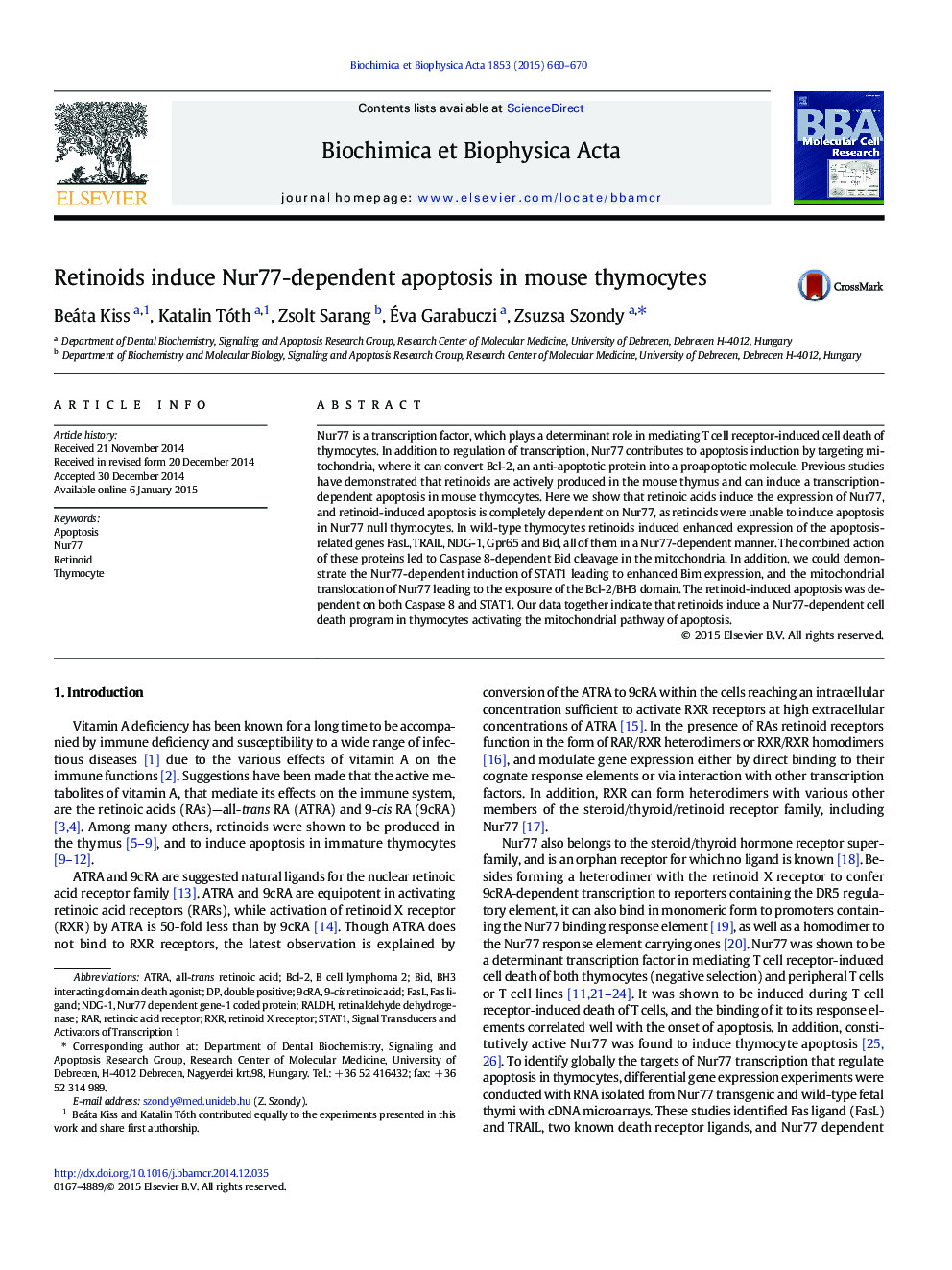| Article ID | Journal | Published Year | Pages | File Type |
|---|---|---|---|---|
| 10801983 | Biochimica et Biophysica Acta (BBA) - Molecular Cell Research | 2015 | 11 Pages |
Abstract
Nur77 is a transcription factor, which plays a determinant role in mediating T cell receptor-induced cell death of thymocytes. In addition to regulation of transcription, Nur77 contributes to apoptosis induction by targeting mitochondria, where it can convert Bcl-2, an anti-apoptotic protein into a proapoptotic molecule. Previous studies have demonstrated that retinoids are actively produced in the mouse thymus and can induce a transcription-dependent apoptosis in mouse thymocytes. Here we show that retinoic acids induce the expression of Nur77, and retinoid-induced apoptosis is completely dependent on Nur77, as retinoids were unable to induce apoptosis in Nur77 null thymocytes. In wild-type thymocytes retinoids induced enhanced expression of the apoptosis-related genes FasL, TRAIL, NDG-1, Gpr65 and Bid, all of them in a Nur77-dependent manner. The combined action of these proteins led to Caspase 8-dependent Bid cleavage in the mitochondria. In addition, we could demonstrate the Nur77-dependent induction of STAT1 leading to enhanced Bim expression, and the mitochondrial translocation of Nur77 leading to the exposure of the Bcl-2/BH3 domain. The retinoid-induced apoptosis was dependent on both Caspase 8 and STAT1. Our data together indicate that retinoids induce a Nur77-dependent cell death program in thymocytes activating the mitochondrial pathway of apoptosis.
Keywords
Bcl-29cRANUR77Retinoid X receptorRXRRARatRABH3 Interacting Domain Death AgonistStat1all-trans retinoic acid9-cis Retinoic AcidThymocyteApoptosisdouble positiveRALDHRetinaldehyde dehydrogenaseRetinoidFas LigandFasLsignal transducers and activators of transcription 1B cell lymphoma 2BIDRetinoic acid receptor
Related Topics
Life Sciences
Biochemistry, Genetics and Molecular Biology
Biochemistry
Authors
Beáta Kiss, Katalin Tóth, Zsolt Sarang, Ãva Garabuczi, Zsuzsa Szondy,
